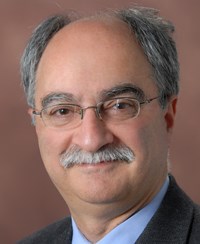The Asociación de Fundaciones Empresariales (Association of Corporate Foundations) in Colombia, hereinafter AFE, held four focus group discussions from 19 to 22 August in the four largest Colombian cities: Bogota, Barranquilla, Cali and Medellin. The purpose was to reflect upon the challenges in private social investment and philanthropy. This is part of a wider study in Latin America covering Colombia, Brazil and Argentina that is being carried out by GIFE, CEMEFI, GDFA and AFE, with the support of AVINA Foundation and the Inter American Bank Foundation, and the active participation of WINGS.
The focus groups covered definitions and their meanings in the local context; key actors (individuals, families, corporations, institutions, hybrid NGO-foundations, foundations); mechanisms (direct implementation, grantmaking, and for-profit or not-for-profit programmes for social impact); reflections on the last 10 years and challenges for the next 10 years; driving forces behind the sector; and collaboration between private and public sectors, and civil society.
Most participants (over 95 per cent) were corporate and family foundations. Some represented the governmental agencies focused on social challenges. Although NGOs were invited, only a few attended – which is a shame as they are key actors.
The first author participated in the focus group discussions as part of his fellowship funded by Robert Bosch Foundation to identify the emerging new Arab philanthropy discourse, and in so doing to look at discourses in other regions and countries to identify similarities and differences and to identify processes that are shaping the new forms of global philanthropy. The hope is to raise interest in Latin America to do the same reflection and research as the one being done in the Arab region.
There will be a detailed report by AFE on the various focus group meetings. However, some of the early key impressions are summarized here:
- There is no consensus on the reach of the word philanthropy. Most of the attendants understand philanthropy as an act of generosity and solidarity, altruistic expressions, no return expectations, and love for humanity. The majority agree that philanthropic actions have no focus and short-term results; they imply charity and handouts that do not generate social value; and they are performed by individuals. There is no strategy involved in philanthropic actions. Most refer to philanthropy as an act of giving fish without teaching how to fish, so philanthropic actions do not generate capabilities. Only one participant, out of a total of close to 60 in all focus groups, mentioned social transformation.
- Private social investment, on the other hand, implies sustainable approaches to social change. Words to describe it are: sustainability, measurable impact, returns (some focused on financial returns while others meant wider financial and social returns), planning, strategic approaches, empowerment, engagement, partnership and collaboration, innovation, and risk-taking.
- There was tension between aiming at social change while making financial profits versus reinvesting any profits in expanding the work for scaling up. While there was general acceptance of social investment, social business was not readily accepted by all the attendants.
- There is a sense of disconnection between ‘philanthropy’ and social investment. Only a few saw a link between the two or accepted that, to meet societal needs, both approaches are needed. For some, philanthropy and private social investment can complement each other and can be made by the same organization according to the contexts in which it moves. In Medellin, one of the attendants highlighted that when someone is drowning it is necessary to lend a hand to get them out of the water because there is no time left to start swimming lessons. Therefore, there are conditions in which it is necessary to engage in philanthropic actions and assist people. To the majority, however, philanthropy and private social investment are two completely different approaches when you think about social change.
- There was clearly an issue of trust between foundations and NGOs. There is not much synergy between their activities, with many foundations implementing their own programmes with little grantmaking.
- All of the attendants highlighted the importance of ‘territorial’ development, ie local development programmes between foundations, businesses and the community. Corporate foundations are bringing the relationship between businesses and communities closer, building collaborative strategies with other stakeholders in order to develop geographical areas and build local capacities.
- The key changes over the last ten years (and expected to continue for the next ten years) include: moving from CSR to social investment, inclusive development programmes, and more inflows of funds to social investment. Also, more consideration is given to sustainability, accountability, transparency, impact measurement, knowledge management, and collaboration with governments. All foundations are aware of the importance of influencing public policies and strengthening public-private partnerships.
The foundation sector in Colombia is growing and playing a pivotal role in the development of Colombian society. The dominant approach by these foundations is social investment. The application of the taxonomy from the well-established foundation sector in the Anglo-Saxon domain could be limiting in identifying the diverse local practices. The use of the word philanthropy clearly does not have universal meaning. Unraveling existing practices, terms used and approaches from the various regions of the world should precede defining conclusive trends regarding global philanthropy. A key driver for the growth of the foundation sector in Colombia is the partnerships forged among several corporate foundations on central societal issues like improving education, peace building, inclusive programmes for members of rebel groups to help them find their place in society, and helping internally displaced groups to reclaim their deserted villages and rebuild their communities.
Atallah Kuttab is founder and chairman, SAANED for Philanthropy Advisory.
Maria Carolina Suarez is executive director of AFE.





Comments (0)